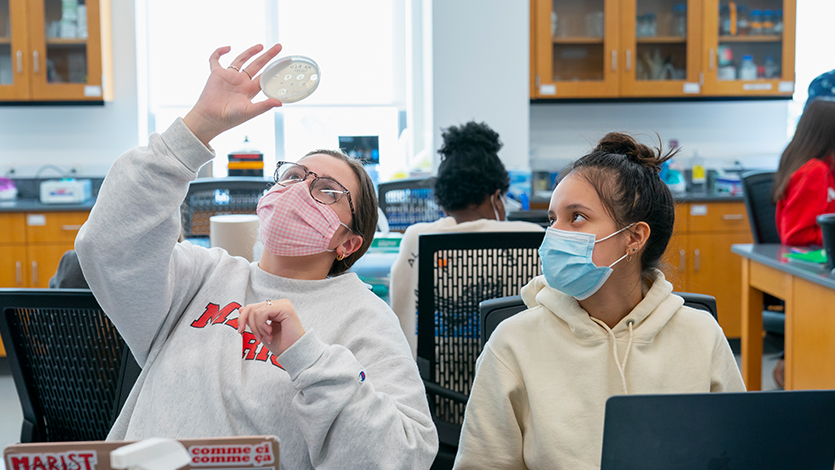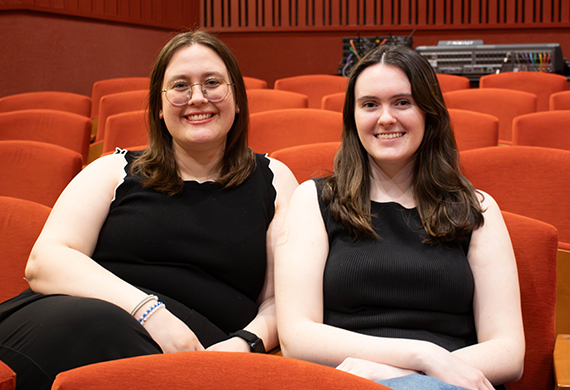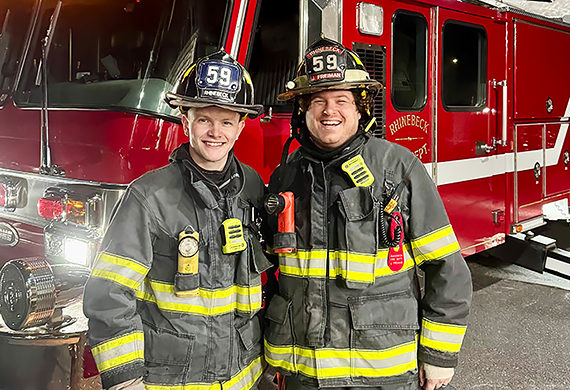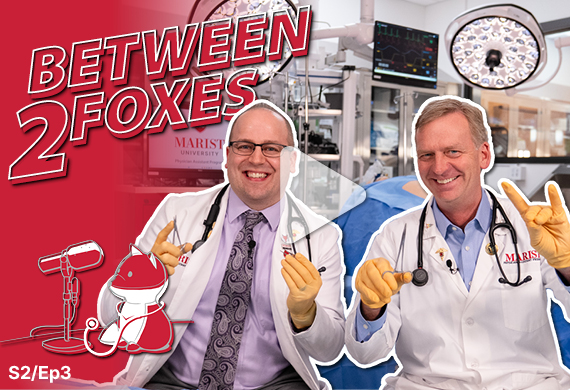Hands on Research Provides First Year Students Valuable Experience in the Lab

March 10, 2022 — Ensuring that students have the opportunity to couple classroom education with hands-on experiences is one of the hallmarks of a Marist education. The SEA-PHAGES program in the School of Science does exactly that.
The Science Education Alliance (SEA), a project from the Howard Hughes Medical Institute offers two programs for institutions. Marist partnered with SEA to take part in the PHAGES program that studies novel bacteriophages from a local environment over two semesters. The SEA-PHAGES program aims to embed fundamental research and practices into early undergraduate science programs across the nation, and Marist is now a member of this vast network of partner institutions.
In the PHAGES program students both identify and characterize, “novel bacteriophages from local environments, annotate the genomes, and submit the annotated sequences to the National Center for Biotechnology Information GenBank database,” according to the Howard Hughes Medical Institute webpage.
When Dr. Megan Dennis, Assistant Professor of Biology, and the Biology Department looked to update the lab opportunities for early undergraduate students, the SEA-PHAGES program stood out. “This program was noteworthy for the level of support provided to faculty and students, and for a history of strong assessment, with documented evidence of its benefits on student outcomes,” said Dennis.

Bianca D’Costa ’25 (center, seated in blue) with Dr. Megan Dennis (right, standing)
As one option for the general biology lab for first-year students, the SEA-PHAGES lab allows high-impact learning opportunities and the chance to make scientific discoveries that can impact a scientific field. “This program gives students a chance to participate in authentic biology research from the moment they arrive on campus and to make discoveries which contribute to advances in medicine and other disciplines,” said Dennis.
First-year Biomedical Science major Sydney Natale ’25 never thought she would conduct this type of research early on in her college experience. “In high school, we pretty much knew what results we expected. Now we have the ability to discover something brand new. I assumed I wouldn’t be conducting this type of research until at least junior year. This is truly an exciting opportunity,” said Natale.
Continually researching throughout the semester, students participating in the SEA-PHAGES program can see their progress and results through the finish line, giving young students invaluable experience. “Each day in the lab is dedicated to a specific procedure to advance the study. Each procedure fulfilled in the lab builds off of the previous days’ techniques, enabling me to directly visualize the significance of each precise step executed to progress the study,” said Biomedical Science major Bianca D’Costa ’25.

Sydney Natale ’25 (left)
“For Marist, this is an exciting opportunity to expand access to high-impact educational experiences, and to support students as they build their skills and identity as scientists,” said Dennis.
The students involved are not only in the lab researching their phages; they are then translating their discoveries to a collective database, sharing research across the nation. “The end goal of our research is to discover phage, analyze its genome, and publish our findings to the phage discovery database,” said Natale.
Throughout the research, students have adapted from the unexpected and learned to adjust their research amid unforeseen results. “The fascinating research that I have contributed to in my lab has taught me the importance of growing from unexpected results, being ready to adapt to any changes, and viewing them positively as resources to expand the science-based horizon,” said D’Costa.
To see the research students conducted during the Fall 2021 semester, filter “Marist” under the institution's drop-down on The Actinobacteriophage Database.



